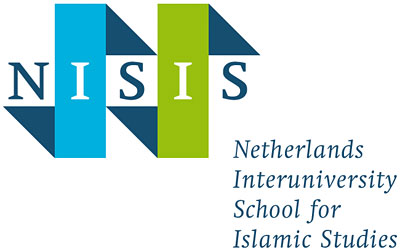Agenda
NISIS/ Clingendael Workshop ‘The Political Relevance of Islamism in the Contemporary Middle East’
NISIS organizes a study day in collaboration with the Clingendael Institute on ‘The Political Relevance of Islamism in the Contemporary Middle East’ .
Confirmed speakers:
- Younes Saramifar, assistant professor of Inhumanities at the faculty of Humanities of the Vrije Universiteit Amsterdam;
- Joud Alkorani, assistant professor Islam, Politics and Society at the Radboud University Nijmegen;
- Mohamed-Ali Adraoui, researcher at the Scuola Superiore Meridionale in Naples;
- Pieter Nanninga, assistant professor Middle Eastern Studies at the University of Groningen;
- Maurits Berger, professor of Islam and the West at Leiden University
This event is fully booked. Registering is not possible anymore.
Middle Eastern organisations rooted in Islamism – defined here as the belief that Islam, besides its religious components, should also be translated into political and societal activism – have existed for many decades. Since the founding of the Muslim Brotherhood in Egypt in 1928 – often seen as the beginning of Islamist organisations – the Islamist trend has led an eventful existence: the initial Muslim Brotherhood grew spectacularly in Egypt and the broader Middle East in the 1930s and 1940s, only to be repressed in various countries in subsequent years, winning elections in Egypt after the so-called Arab Spring in 2012 and ultimately ending up as a banned organisation since 2013. Beyond Egypt, Islamist organisations – affiliated with the Muslim Brotherhood or not – have enjoyed similar combinations of electoral success and political repression in countries such as Morocco (Parti de la Justice et du Développement (PJD)), Tunisia (Ennahda) and Jordan (Islamic Action Front (IAF)). Some Islamist organisations, like the Palestinian Hamas and the Lebanese Hizbullah, have gone through somewhat similar processes, but add the layer of militant activism on behalf of their national or sectarian group against Israel, which has been on full display since 2023 in both organisations’ war with that country.
At the same time, a more radical trend of Islamism has developed since the 1960s, whose adherents do not want to conform to the rules of the state. In 1979, such revolutionary Islamists overthrew the regime in Iran, while others expressed their contention through local terrorist attacks (Groupe Islamique Armé in Algeria, Al-Jama‘a al-Islamiyya in Egypt), assassinations of rulers (Tanzim al-Jihad in Egypt), global jihad (al-Qaida) or attempts to resurrect the caliphate (the Islamic State (IS)). Although some of these groups do not exist anymore, others – like al-Qaida and the Islamic State – do, even after years of a global war on terrorism, which has severely hampered the activities of such groups.
Given the bans that Islamist groups have been subjected to, the wars that they are engaged in and the repression that they have suffered over particularly the past decade, one might wonder whether there is a long-term future for these organisations. In fact, one of the remarkable things about the Arab uprisings in 2010-2012 was that the overthrow of dictatorial regimes in the Arab world – long advocated by al-Qaida – was done entirely without the help of radical Islamists. Similarly, although the uprisings brought Islamists to power in Egypt, the subsequent backlash against this trend has ostracised groups like the Muslim Brotherhood in many countries, varying from Egypt and Jordan to Saudi Arabia and the United Arab Emirates. Even the country that was long held up as the sole success story of the Arab uprisings – Tunisia – has reversed Islamists’ fortunes and has returned to authoritarian rule. In this context, what is the political relevance of Islamist groups of both the non-radical and radical kind in today’s Middle East?
This event is fully booked. Registering is not possible anymore.
To provide an answer to the question of the political relevance of Islamism in the contemporary Middle East, this study day concentrates on three different sets of questions:
- Which strands of Islamism remain politically relevant in today’s Middle East? In what dimensions are they relevant (protest, modernization, gender perspectives elections, safety net and charitable activity, political violence etc), what are the core dynamics of these strands with regard to mobilization and socio-political activism and what is their impact on the current regional geopolitical situation and/or particular domestic socio-political situations in the region?
- How do these strands relate to the legacy of the Arab uprisings, understood as protests against bad governance, hampered social mobility and limited prospects for national development? What does this mean for their political orientation and agenda today given the entrenchment and even revival of authoritarian system systems of rule in much of the region?
- To what extent are different strands of Islamism influenced by the Israeli military campaign in Gaza and the enduring occupation of the Palestinian people?
Each of the speakers of this study day will deal with Islamism in the framework of one of these (sets of) questions, thereby deepening our understanding of the continued (ir)relevance of Islamist actors in the Middle East.
This event is fully booked. Registering is not possible anymore.



